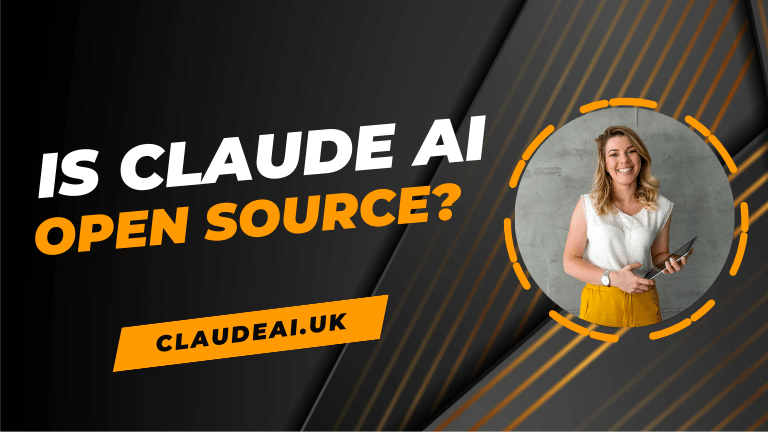Is Claude AI Open Source? Claude AI is an artificial intelligence chatbot created by Anthropic, a San Francisco-based AI safety startup. Since its launch in 2022, Claude has received widespread acclaim for its natural language capabilities and harmless, helpful nature.
Many people are curious whether Claude’s underlying source code and training data are open source and publicly available. The answer is no – Claude is fully proprietary and its codebase is not open sourced.
What is Claude AI?
Claude AI is an conversational AI assistant trained by Anthropic to be helpful, harmless, and honest. It uses a technique called Constitutional AI to ensure its responses align with human values. Claude can understand natural language, reason about the world, and carry on nuanced conversations across a wide range of topics.
Some key features of Claude AI include:
- Natural language processing to comprehend human conversations
- Generative AI to produce thoughtful, relevant responses
- Self-supervision techniques to continue learning from diverse conversations
- Harm avoidance through safety measures like Constitutional AI
- Helpfulness focused on providing useful information to users
Claude is currently available through a free research preview, with plans for integration into customer support and other enterprise applications in the future.
Is Claude AI Open Source?
No, Claude’s underlying source code, training data, and machine learning models are completely proprietary and not open source. Anthropic has not publicly released any of the core technical details behind how Claude works.
The company cites safety and ethics concerns as the reason for keeping Claude’s internals closed source. Releasing such a powerful conversational AI model without proper safeguards could lead to harmful misuse, according to Anthropic.
Some other downsides to open sourcing Claude’s code include:
- Loss of control over how the technology is used
- Increased risk of biases or model flaws being propagated
- Difficulty monetizing the technology after public release
- Legal and regulatory risks associated with releasing private training data
For these reasons, Anthropic intends to keep Claude’s source code private indefinitely. However, the company has said it will openly publish AI safety techniques like Constitutional AI that support the development of helpful, harmless AI systems.
What is Open Source AI?
Open source artificial intelligence involves publicly releasing the source code, training methodology, weights, and other technical details of an AI system. This allows the global research community to inspect, replicate, modify, and build upon existing AI models.
Some well-known open source AI projects include:
- TensorFlow – Popular open source library for building and training neural networks. Developed by Google.
- Transformers – Natural language processing models like BERT and GPT-3 with openly shared implementations.
- Python ML Libraries – Key machine learning packages like Scikit-Learn, Pandas, NumPy available under open licenses.
Proponents of open sourcing AI argue wider transparency and decentralization will lead to safer, more robust AI development. However, companies like Anthropic counter that responsible disclosure is necessary in some cases to avoid harmful applications of the technology.
Claude AI Alternatives
Since Claude AI is not open source, some alternatives to consider include:
- ChatGPT – Advanced conversational AI chatbot from OpenAI. Not open source but wider access available through the API.
- GPT-3 – OpenAI’s foundational natural language model. Access recently opened to all developers.
- BigScience – French nonprofit building an open source alternative to models like GPT-3.
- AI21 Studio – Text generation platform utilizing open source Jurassic-1 model.
- Bloom – Open source conversational AI assistant created by Hugging Face.
These projects demonstrate a range of approaches to developing and releasing conversational AI safely and ethically. While not fully open, options like the ChatGPT API and AI21 Studio offer increased transparency compared to fully proprietary alternatives.
The Future of Open Source AI
The debate around open source AI will likely intensify as models become more advanced. Allowing public access can fuel innovation but also carries risks if proper oversight is not applied.
Striking the right balance between transparency and responsibility is a key challenge for the AI community going forward. Hybrid approaches that share some technical details while limiting broad access may provide a reasonable compromise.
For its part, Anthropic intends to keep Claude’s core internals proprietary for the foreseeable future. However, the company plans to openly share techniques and lessons learned along the way to support the development of safe, beneficial AI across the entire field.
While Claude itself is not open source today, its Constitutional AI framework points towards a future where AI assistants can be helpful, harmless, and honest by design. With continued progress in AI safety and ethics, the need for such precautionary measures may gradually decline.
Conclusion
Claude AI represents a major advance in conversational AI, but its source code and training data remain fully proprietary rather than open source. Anthropic cites preventing harmful misuse as the reason for this closed approach. Critics counter that openness encourages innovation and oversight.
The debate around open source AI involves important arguments on both sides. For now, Claude provides helpful AI capability without the risks of public release. However, alternative open source options are emerging for those seeking more transparency.
Finding the right balance between AI capabilities and safety through openness or control remains an ongoing discussion within the field. As models grow more advanced, determining the appropriate level of access will only become more crucial.


